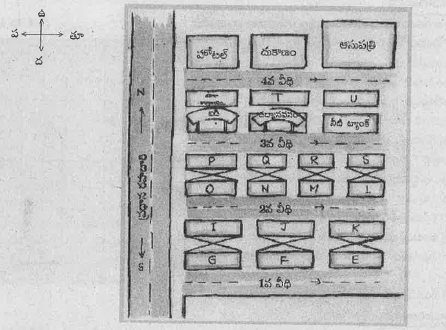(xn−1) అను బాహుపదికి (x−1) ఒక కరణాంకామని నిరూపించండి.
Step by step video & image solution for (x^(n)-1) అను బాహుపదికి (x-1) ఒక కరణాంకామని నిరూపించండి. by Maths experts to help you in doubts & scoring excellent marks in Class 9 exams.
Updated on:21/07/2023Topper's Solved these Questions
- బహుపదులు మరియు కరణాంకా విభజనBOOK - VGS PUBLICATION-BRILLIANT(TELUGU)CHAPTER - బహుపదులు మరియు కరణాంకా విభజనEXERCISE - Exercise
208 Videos
- బహుపదులు మరియు కరణాంకా విభజనBOOK - VGS PUBLICATION-BRILLIANT(TELUGU)CHAPTER - బహుపదులు మరియు కరణాంకా విభజనEXERCISE - Exapmle
15 Videos
- నిరూపక జ్యామితిBOOK - VGS PUBLICATION-BRILLIANT(TELUGU)CHAPTER - నిరూపక జ్యామితిEXERCISE - Exercise
87 Videos
- రెండు చరరాశులలో రేఖీయ సమీకరణాలుBOOK - VGS PUBLICATION-BRILLIANT(TELUGU)CHAPTER - రెండు చరరాశులలో రేఖీయ సమీకరణాలుEXERCISE - Exercise
180 Videos
Similar Questions
కింద ఇవ్వబడిన ప్రతి బాహుపది యొక్క పరిమాణం కనుగొనండి. x5−x+3
View Solutionకింద ఇవ్వబడిన బాహుపదులలో సూచించిన చరరాశి విలువను ప్రతిక్షేపించి విలువలు కనుగొనండి. X=1 వద్ద p(x)=4x2−3x+7
View Solutionఒక ఆవాస ప్రాంతంలో ప్రధాన రహదారి ఉత్తర-దక్షిణ దిశలలో ఉంది. దాని పటం కింది ఇవ్వబడినది. పటం సహాయంతో కింది ప్రశ్నలకు సమాధానాలు వ్రాయండి.
 తూర్పుదిక్కున వెళ్లునప్పుడు మూడవవీధిలో ఎడమవైపు మూడోవస్థానంలో ఏం ఉంది?
తూర్పుదిక్కున వెళ్లునప్పుడు మూడవవీధిలో ఎడమవైపు మూడోవస్థానంలో ఏం ఉంది?
View Solutionకింది రేఖాసమీకరణలను ax+by+c=0 రూపంలో రాసి, ప్రతి సందర్భంలోను a,b మరియు c విలవును రాయండి. 3x+2y=9
View SolutionIf |x|<1,then1+n(2x1+x)+n(n+1)2!(2x1+x)2+...... is equal to a.(2x1+x)n b. (1+x2x)n c. (1−x1+x)n d. (1+x1−x)n
View SolutionIf x!=n and cot^(-1)x+cot^(-1)(n^(2)-x+1)=cot^(-1)(n-1) then x=
View SolutionFind the value of (1+x)^(n)+nc_(1)(1+x)^(n-1)*(1-x)+^(n)C_(2)(1+x)^(n-2)(1-x)^(2)+.........+(1-x)^(n)
View SolutionLet Sn(x)=(xn−1+1xn−1)+2(xn−2+1xn−2)+.....+(n−1)(x+1x)+n, then
View SolutionThe coefficient of x−n in (1+x)n(1+1x)n is
View SolutionFind the value of
(1+x)n+nC1(1+x)n−1.(1−x)+nC2(1+x)n−2(1−x)2+.....+(1−x)n
View SolutionShow that xn=1+n(1−1x)+n(n+1)1.2(1−1x)2+...
View SolutionShow that xn=1+n(1−1x)+n(n+1)1.2(1−1x)2+….
View Solutionవాలు 'సున్నా' '0' గా గల (లేదా) x=k అను రేఖ
View Solutionప్రతీ n∈R కు (cosh x - sinh x)^(n) = cosh (nx) - sinh (nx) అని నిరూపించండి.
View Solutionప్రతీ n∈R కు (cosh x + sinh x)^(n) = cosh (nx) + sinh (nx) అని నిరూపించండి.
View SolutionIf |x|<1,then1+n(2x1+x)+n(n+1)2!(2x1+x)2+...... is equal to a.(2x1+x)n b. (1+x2x)n c. (1−x1+x)n d. (1+x1−x)n
View Solution
